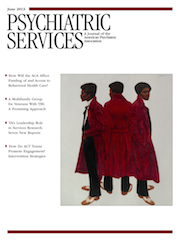Multifamily Group Treatment for Veterans With Traumatic Brain Injury: What Is the Value to Participants?
Abstract
Objective
This study evaluated the feasibility, acceptability, and helpfulness of implementation of multifamily group treatment for traumatic brain injury (TBI) among veterans who sustained a TBI during the wars in Iraq and Afghanistan and their families or caregivers.
Methods
Veterans and their family members who participated in an open clinical trial (August 2010–March 2011) of multifamily psychoeducation for TBI at two Veterans Affairs medical centers were invited to one of three focus groups. Participants were asked about problems experienced before and during the intervention, aspects of treatment that were helpful, and improvements that would facilitate effective implementation of multifamily group treatment for TBI. Postintervention focus group transcripts were analyzed by utilizing qualitative content analysis.
Results
Participants included eight veterans with TBI and eight family members. Five themes emerged: exploring common struggles and reducing isolation, building skills to cope with TBI and related problems, restoring relationships through communication and understanding, increasing understanding of the interconnection between TBI and posttraumatic stress disorder, and improving the multifamily group experience and increasing treatment engagement of veterans and families. Veterans and family members found multifamily group treatment for TBI highly acceptable and offered recommendations to improve and increase access to the program.
Conclusions
The results supported the feasibility and acceptability of multifamily group treatment for TBI. Specific recommendations to improve this psychoeducational intervention and its implementation are offered.



